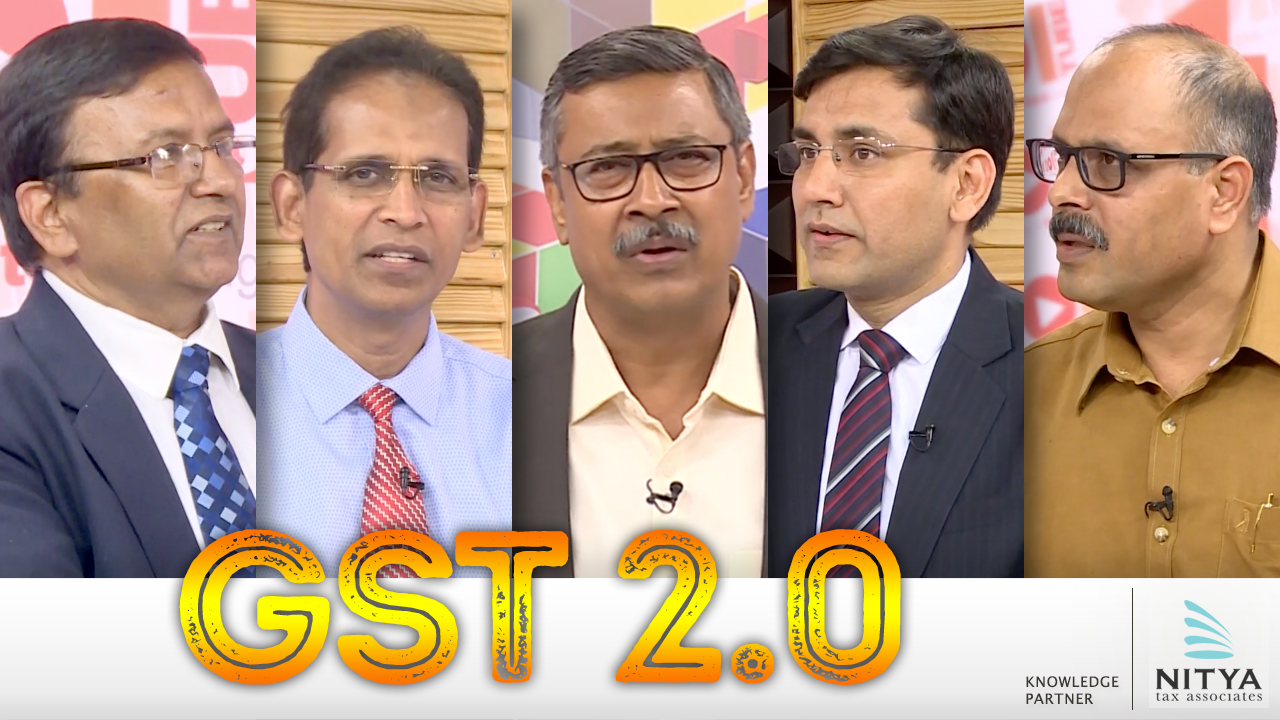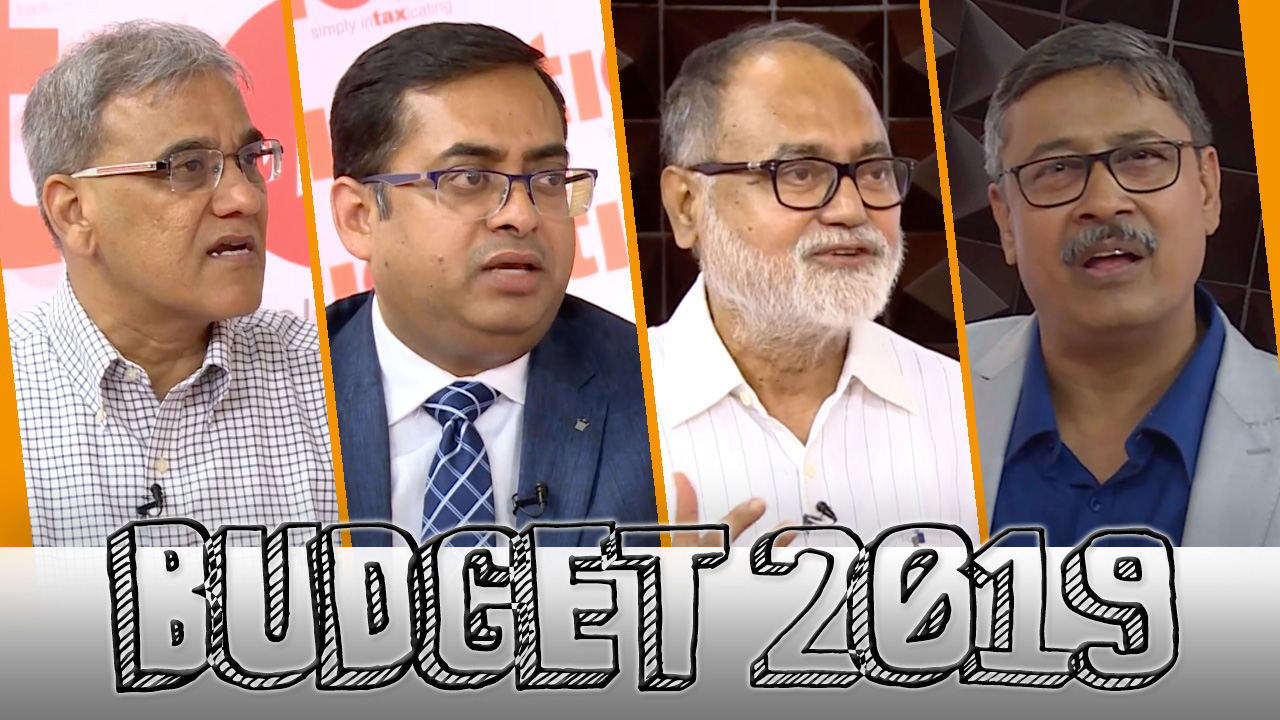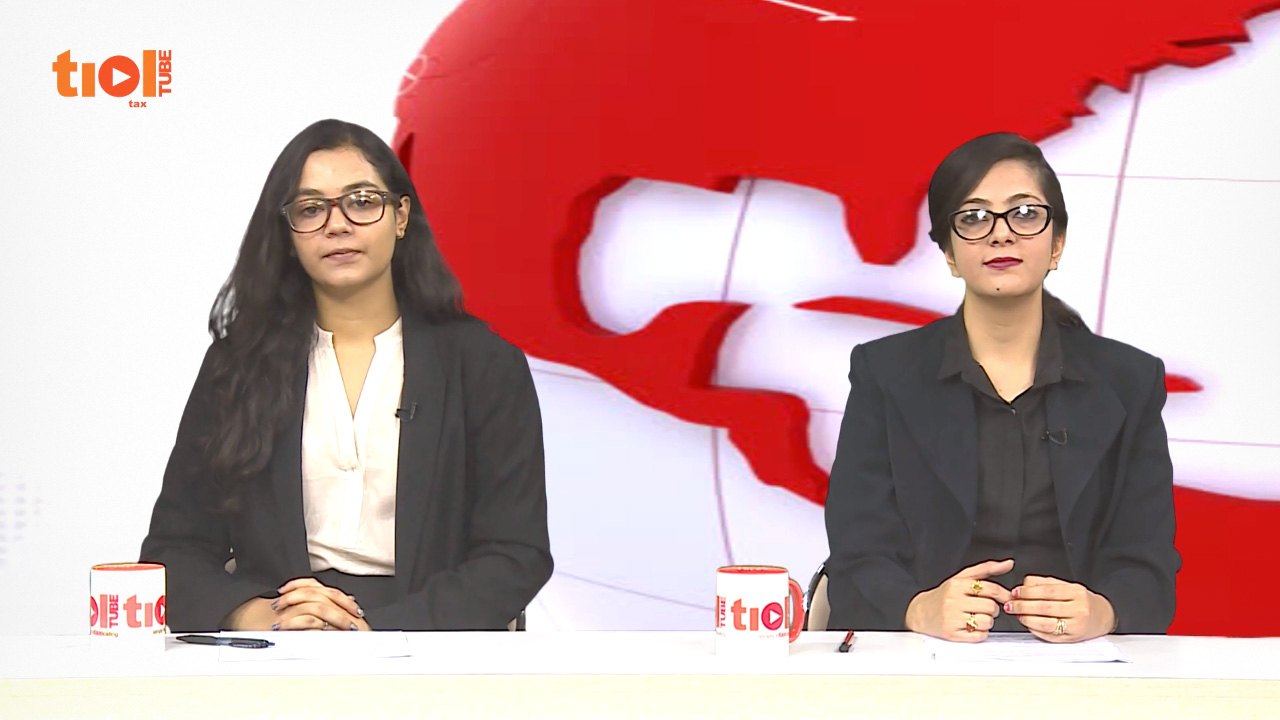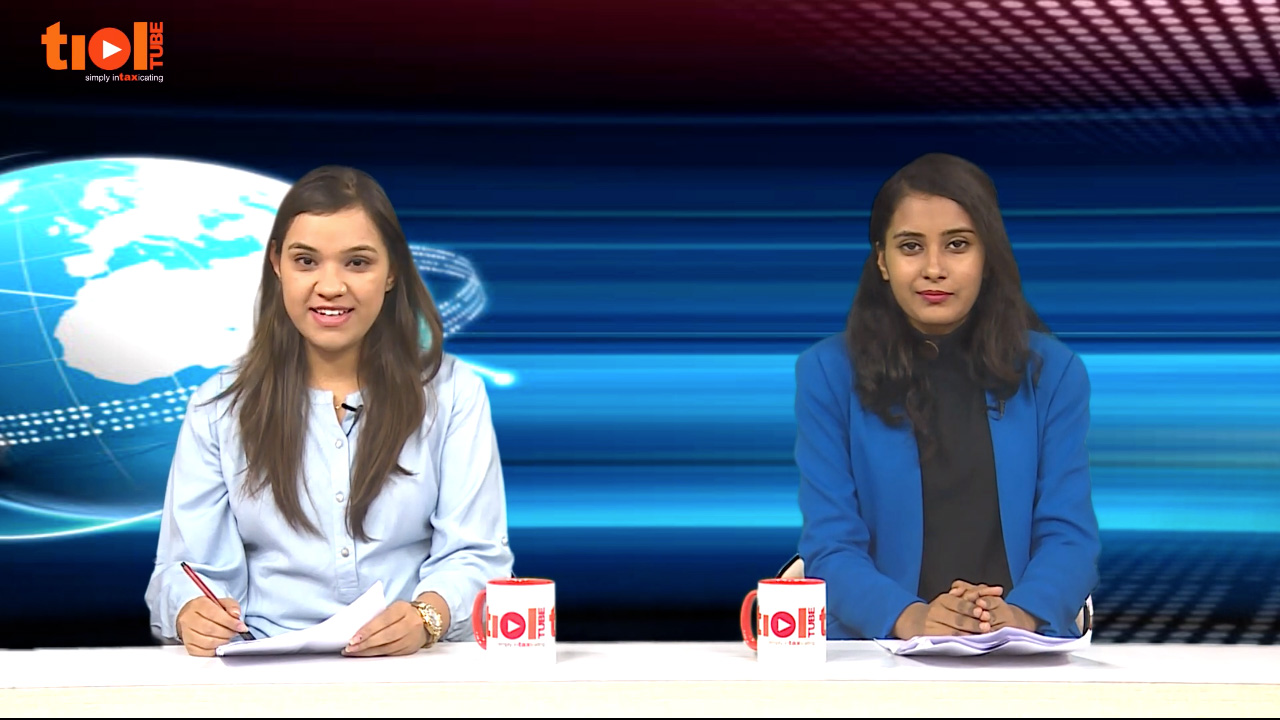|
SERVICE TAX
2019-TIOL-1812-CESTAT-MAD
Tessy Engineers And Enterprises Vs CGST & CE
ST - The assessee-company provides Erection and Commissioning or Installation Services in India as well as abroad - During the relevant period, the assessee deputed skilled employees abroad for attending to the work & claimed Overseas Mediclaim Policy for such employees - The assessee claimed Cenvat credit on such mediclaim policy, but the same was denied by the Revenue - Hence the present appeal.
Held - An identical issue stands settled in the assessee's own case for a previous period - Credit had been allowed therein on such input service, on grounds that the insurance policies were availed for covering risk to employees who undertake works in their projects abroad - It was also observed that the labor legislations in India mandated that the employer covers the risk of untoward incidents or injuries that may happen to employees at the work site - Following such findings, the credit is allowed in the present case as well: CESTAT
- Assessee's appeal allowed: CHENNAI CESTAT
2019-TIOL-1811-CESTAT-DEL
Vaibhav Global Ltd Vs CGST & CE
ST - The assessee is engaged in manufacturing and export of gems and jewellery - He had filed a refund claim under Rule 5 of CCR, 2000 and Notfn 27/2012-CE in respect of cenvat credit taken on inputs services used in manufacture of finished goods which were subsequently exported by assessee - The Department found that assessee is engaged in manufacture of an excisable goods i.e. gems and jewellery and cleared the same for DTA as well as exported the goods out of the country - However, the goods being exempted under Notfn 12, the assessee is denied eligibility to avail cenvat credit on input services due to being exclusively used for exempted goods as per Rule 6(1) of CCR, 2004 - The assessee admittedly is engaged in clearing excisable goods however the controversy is whether the goods i.e. gems and jewellery were fully exempted or not - The assessee has drawn attention to the Ministry of Law advice dated 29.10.1974 as circulated vide CBEC Circular No. 278/112/96-CX - Rule 3 of CCR, 2004 prescribes that cenvat credit can be taken by a manufacturer or a provider of due to service and that there is no requirement of the registration at all - This Tribunal in the case of Wipro BPO Solutions Limited has held that refund of service tax paid on input services were exported - The finding of Commissioner (A) mandating the registration are therefore not sustainable - Otherwise also it is admitted fact that assessee was having centralized service tax registration for two units namely M/s Vaibhav Global Ltd. (100% EOU) and the other DTA unit situated at M/s Vaibhav Global Ltd. Sitapura, Jaipur - In view of said admission for clearance of excisable goods for domestic area the assessee was well registered - Finally coming to the allegation of non distribution of credit, the goods of assessee are excluded from the scope of "exempted goods" under Rule 7(b) of CCR, 2004 as has been relied upon by Commissioner(A) to reject the refund is not applicable - The Order rejecting 3 of the refund claims is therefore set aside: CESTAT
- Appeals allowed: DELHI CESTAT
CENTRAL EXCISE
2019-TIOL-1810-CESTAT-DEL
CCE & ST Vs Gas Authority of India Ltd
CX - The assessee is primarily engaged in transportation of natural gas through pipelines - In addition they are also engaged in manufacture of petroleum gases and other gaseous hydrocarbons, petroleum oils and oils obtained from bituminous minerals other than crude - The moot question to be adjudicated is as to whether the product manufactured by assessee is Natural Gasoline Liquid (NGL) having excise duty at the rate of 14 per cent ad volerum plus Rs.15 Rs per liter having tariff entry as 2710 12 20 or it is Naphtha having the excise duty at the rate of 14 per cent ad volerum and tariff entry as 2710 12 90 - No doubt the onus is upon the department for establishing that goods are classifiable under a particular tariff entry - The chemical examiner report is sufficient evidence with department to discharge the said burden - Due test memo was prepared while collecting the sample of said report - The Chemical Examiner was cross examined by assessee - Except the minor contradictions nothing could be extracted to prove the product as Naphtha - Assessee has nowhere confronted the chemical examiner with the specifications of Naphtha and that the specifications of the sample match with that of Naphtha - Further, the contradictory stand of assessee is very much apparent from his reliance upon the case Gail where the assessee has impressed upon the NGL to have fallen under Chapter heading 2719 - Natural gas after extraction of LPG remains natural gas, and therefore, lean gas is also to be classifiable under sub heading 2711 21 the product in hand is not natural gas but natural gasoline liquid specifically defines under Chapter heading No. 2710 - Finally coming to the plea of SCNs being barred by time; it is clear that the product of assessee has wrongly been classified by them as Naphtha - The act to the extent of even claiming exemption on the mis-declarated product is a positive act of mis-representation of the facts with sole intention to evade duty - Resultantly the Department, in view of the proviso to Section 73 of Central Excise Act, is held to be very much entitled to invoke the extended period of limitation - Not only this, the penalties are also held to have been rightly proposed in SCNs but wrongly done away by Adjudicating Authority below - The mis-declaration on pact of assessee has already been established - Major duty difference on mis-declared product is also held to be the strategy of tax evasion - Merely that assessee is PSU is not sufficient to set aside the SCN as being barred by time - To this aspect also Adjudicating Authority below is held to be incorrect - It is held that the Adjudicating Authority below has committed a blatant error while dropping impugned such a heavy demand that too vide non-speaking order having just the recitals of the facts and the statements with not cogent reasoning of arriving to the conclusion that the product is Naphtha - The findings are based on chemical literature available and the evidence on record, classify the product of assessee as Natural Gasoline Liquid (NGL) - Hence it is held that Commissioner rather has proceeded with the pre-supposed mind of holding the product of assessee being Naphtha - The findings accordingly are held as apparently wrong hence are hereby set aside - The impugned order is set aside: CESTAT
- Appeal allowed: DELHI CESTAT
2019-TIOL-1809-CESTAT-DEL
Honda Cars India Ltd Vs CCE
CX - Prior to incorporation of assessee, HMSI, undertook manufacture of two-wheelers and parts thereof - The assessee commenced its operations in 2006 - In 2009, the spare parts division of HMSI was hived off to assessee, considering its specialization in spare parts operation management - The assessee subsequently executed Service Agreement with HMSI - The Service Agreement was amended vide Amendment to Service Agreement dated December 24, 2010 - The assessee receives various services from HMSI, the scope of which is detailed in Service Agreement - In terms of Service Agreement, HMSI is entitled to a consideration computed at 8.5 percent of assessee's net sales - The assessee avails cenvat credit of service tax paid on impugned services - The Adjudicating Authority vide its Impugned Order has denied the benefit of credit basis ground that impugned services do not qualify as 'input service' - No merit found in revenue's contention that services must be received within the factory in order to qualify as 'input service' - In this regard, Rule 3 of Credit Rules allows a manufacturer to avail cenvat credit on 'input services received' - It is noteworthy, that the availment of credit on input service is not qualified by condition that such service must be received within the factory - Accordingly, assessee rightly availed cenvat credit on impugned services in terms of Credit Rules - Consequently, the impugned order denying cenvat credit to assessee is untenable nor any demand of interest will sustain - Since, it is already held that impugned services do not qualify as 'sales commission agent' and further observed that impugned services fall within the sweep of definition of 'input services', there is no need to examine the admissibility of credit on services of sales commission agent - In respect of penalty, since the assessee has rightly availed credit on impugned services, there is no question of imposition of penalty - Details of credit availed on impugned services were duly declared in cenvat register and ER-1 returns duly filed by assessee - Thus, there is no positive activity on the part of assessee to avail inadmissible credit or defraud the revenue - For this reason, neither any penalty is imposable nor extended period is invokable: CESTAT
- Appeal allowed: DELHI CESTAT
2019-TIOL-1808-CESTAT-AHM
Welspun India Ltd Vs CCE & ST
CX - The assessee-company manufactures Terry Towel and Bed Sheets falling under Chatper 63 of the First Schedule to the CETA 1985 - Upto 31.03.2008, the assessee availed benefit under Notfn No 29/2004-CE and paid Excise duty after availing Cenvat credit of duty paid on inputs and capital goods and input services - After 01.04.2008, the assessee decided to avail benefit of Notfn No 30/2004-CE for clearance of goods for home consumption & to avail drawback for export of goods - The assessee filed a letter to the jurisdictional Excise Commissioner, seeking benefit under Notfn No 30/2004-CE - The assessee paid duty equivalent to the credit availed on input used in manufacture of final product and lying in stock in process - The assessee debited some amount of credit from the total credit balance - The assessee filed refund claim in respect of inputs used in exported final products - The refund claim was denied on grounds that the goods were cleared under area-based exemption - On appeal, the Commr.(A) remanded the matter to the Adjudicating Authority for re-consideration - In fresh proceedings, the Asst Commr sanctioned the refund for the relevant period - The Revenue did not challenge either the remand order or the order sanctioning refund - The Revenue conducted audit & raised objection regarding non-eligibility of credit lying unutilized & carried forward for the FY 2008-09 - SCN was issued proposing reversal of credit with interest & penalty - Such demand was confirmed upon adjudication u/r 14 of CCR 2004 r/w Section 11A of CEA 1944 with interest & equivalent penalty - Reversal of credit in respect of capital goods & input services was confirmed - Hence the present appeal.
Held - The credit lying unutilized as on 01.04.2008 is attributed to inputs used in goods already exported before 01.04.2008 & refund was accrued & sanctioned to the assessee - Rule 5 of CCR does not provide exception w.r.t. Rule 11 of CCR 2004 - Hence objective of Rule 5 cannot be defeated by invoking provisions of Rule 11 of CCR - The adjudicating authority ignored all provisions of Rule 6(6) to demand cenvat credit lying in balance by invoking Rule 11(3) in isolation, which is absolutely illegal & incorrect - Regarding unutilized cenvat credit as on 01.04.2008, the same relates to input service credit & capital goods - Rule 11(3) clarifies that provisions for reversal of credit apply only in respect of inputs goods & not input services or capital goods - The provision for lapsing of credit u/r 11(3)(ii) the principle of esjudem generis applies - So, credit on capital goods and input services does not lapse - Ergo, reversal of unutilized credit balance in respect of the same cannot be demanded - The assessee opted for exemption under Notfn No 30/2004-CE, which is not absolute & is conditional - Hence the provisions of Rule 11(3)(ii) providing for lapse of unutilized credit are inapplicable - Moreover, in respect of limitation, no suppression of facts has been attributed to the assessee - Also where amount lies unutilized as on 31.03.2008, the SCN should have been issued within one year - However, the same was issued on 06.05.2009, which is beyond such limitation - Thus the demand is unsustainable on limitation as well as on merits: CESTAT
- Assessee's appeal allowed: AHMEDABAD CESTAT
CUSTOMS
2019-TIOL-1807-CESTAT-MUM
Hewlett Packard India Sales Pvt Ltd Vs CC
Cus - The assessee-company imported HP Dream Screen All in One 400 PC and filed bill of entry classifying the goods under CTH 84715000 - The Revenue disagreed with such classification and asked the assessee to explain the functioning of the product - On adjudication, the Revenue considered relevant information provided by the assessee & opined that the goods were more appropriately classifiable under heading 84713010 - On appeal, such findings in adjudication were confirmed by the Commr.(A) - Hence the present appeal before the Tribunal.
Held - It is evident that the manufacturer himself stated that the product has a touch screen and virtual on screen keyboard, which is as good as the physical keyboard, and could be used for entry of data - Hence there are no merits in the assessee's submissions that there is no keyboard imported or associated with the imported goods - The terms under Heading 847130 do not require the presence of physical keyboard, but only need a keyboard as an input device - The presence of an on-screen keyboard suffices to fulfil the requirements of this heading - Hence it is clear that the goods in question fall under the category of portable computers - The technical literature furnished by the assessee does not support its contentions & it nowhere states that the keyboard must be physical only - Since the goods satisfy the terms and conditions for classification under heading 847130, the classification adopted by the Revenue merits being upheld: CESTAT
- Assessee's appeal dismissed: MUMBAI CESTAT |










